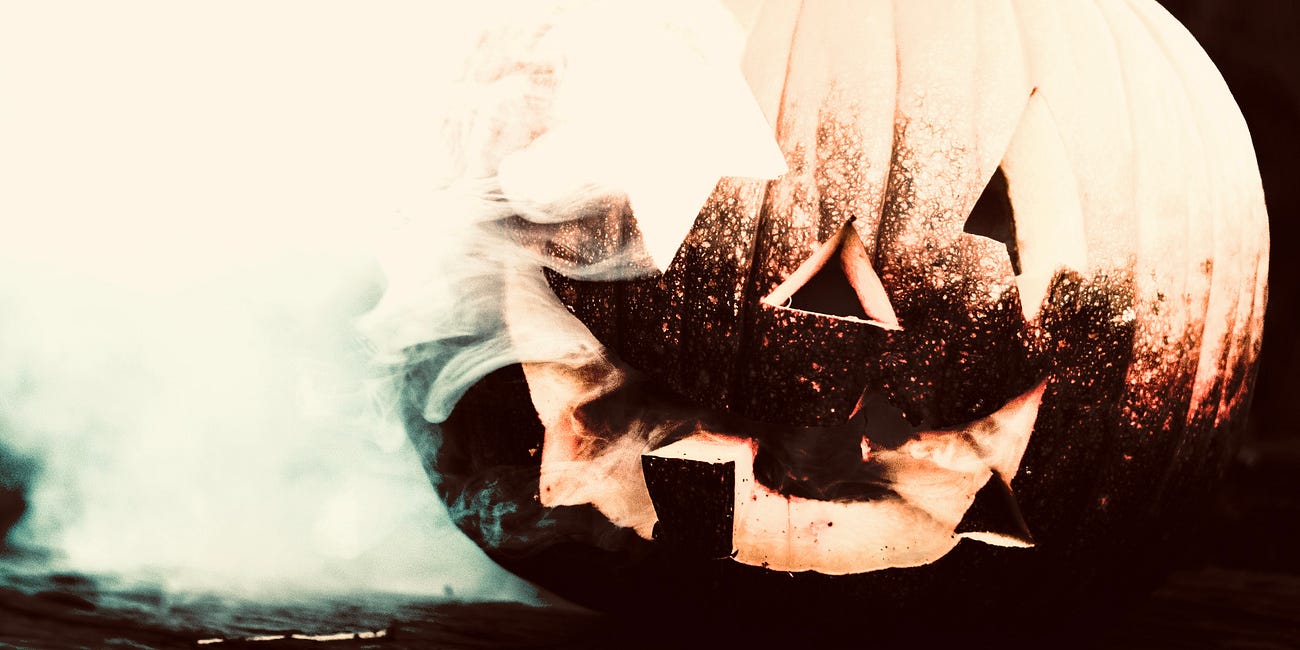A series of personal reflections concerning my illicit literary relationship with Miss Flannery O’Connor
Start here:
Having previously shared something of my spiritual bar sessions with Shūsaku Endō, I’m now celebrating an equal debt of gratitude to my personal matron saint of writing, Flannery O’Connor. Look, I’m realistic. Many others are equally smitten and probably more deserving of her attention. Yet her gracious presence always manages to make me feel sufficiently special.
We were introduced a good while back by another writer for whom I have abiding regard, Mr Walker Percy. Two bells may now be ringing. A Deep South one and a Catholic one. I’ve discussed the latter before. It took me longer to work out the former, given I’m from England with no abiding Confederate leanings. The penny didn’t drop when reading Mr Percy, perhaps because I discovered him early on in my own journey. Subsequently encountering Flannery’s Mystery and Manners was like hitting the jackpot.
It’s not as if there aren’t plenty of inspirational UK fiction writers with Catholic leanings or influences - Greene, Chesterton, Waugh, Spark, Lodge, and Read spring to mind. Certainly, the first two have been defining influences. Chesterton not so much for fiction but massively in elucidating the English peculiarities of my faith. A future refection will explore The Power And The Glory which I hold in equal esteem to Silence and includes (to my mind) a peerless scene at the heart of the story. That said, I noticed the ‘Britishness’ of the above fiction has not particularly captured my imagination. Maybe it’s a class thing, but I’ve never quite connected with Brideshead. Brighton Rock feels closer to my cultural pulse. Even then, whilst I love Greene’s economy of style and poignant metaphorical flourishes, I’ve found something similar in Hemingway, so it can’t simply be a matter of domestic culture.
Mr Percy also introduced me to John Kennedy Toole’s A Confederacy of Dunces which was also right up my boulevard. And, although a pattern slowly began to emerge, it was only after reading Murphy and Dubliners that I realised it wasn’t exactly the Deep South ringing in my ears but rather the cadence of home. That is, the core culture of my home life was Irish not English, and that core is not erased even when transplanted into a different and equally distinct culture or cultures. That transplanting related to both faith and culture.
Enough blood and ink has already been spilt over Irish Catholicism. Suffice to say, I doubt I’d still be a believer had I grown up with the version peddled in Ireland during those years. Weirdly, England was the making of my peculiar religiosity. There’s a line in Chesterton’s The Ballad of the White Horse1 which instantly resonated:
But Mark was come of the glittering towns
Where white hot details show,
Where men can number and expound,
And his faith grew in a hard ground
Of doubt and reason and falsehood found,
Where no faith else would grow.The scepticism that is the love child of English Protestantism and the ‘Enlightenment’ crushed all complacency out of my faith. Although in the grand scheme of things only lately estranged, my gunpowder Catholicism is nonetheless very much estranged in my home nation. In this sense, I’ve always felt my minority status.
Back to Flannery. Not only could I sense a rich seam of that indefinable Irish sense of humour running through her work, but she was also articulating the particular benefits to her fiction of being Catholic in a predominantly Protestant culture. Namely, the somewhat unique perspective afforded by a different set of eyeballs. Nonetheless, her adamantine Catholicism never makes sport of the surrounding protestantisms. Her characters are often highly comic yet she’s never laughing at their expense. The joke is rather on their various false self-assurances and idiocies. Judgement fairly saturates her stories from small individual acts to grand final ones - spanning matters social, cultural, racial, religious, and sexual - yet Flannery herself somehow avoids slipping into judgementalism. No small achievement and, fundamentally, a testimony to her authentic Christian sensibility.
Furthermore, her South reveals a certain obsession with manners and appearances along with an embedded and often unquestioned racism, all of which felt very familiar in this neck of the woods. Yet Flannery is an utterly unapologetic citizen of the South as I am inescapably a subject of His Majesty. Strange parallels indeed.
I can also feel, in her later writing, the very familiar stirrings of a rapacious modernity breathing down her faith. She’s mostly at work pre-Vatican II, but the US is already changing wildly with the times. Her somewhat jocular self-labelling of ‘Hillbilly Thomist’ points to the fact she was deeply immersed in the foundations of her own faith. More common ground. Indeed, secure enough to reject the theological heterodoxies in eg Teilhard de Chardin’s work whilst still appreciating the man and the sheer vision of his vast undertaking.2 It would have been fascinating to see how her stories continued rising to meet these new challenges.
Fiction comparisons aside, all these curiously complex interconnections constitute the daunting gauntlet haunting my own work. I recently compared Flannery to Moses, parting the Red Sea so lesser mortals (like wot I is) might pass over dry shod. After such a splendid miracle, it would be churlish of me not to, at least, attempt the crossing, even carrying the truly inspirational knowledge that what lies beyond is a testing wilderness of seemingly endless wandering.
Photo by Tijs van Leur on Unsplash
p 118, Fifth Edition (1914), Methuen, London.
A solid article for anyone further interested:






Really enjoyed this one! I've always liked O'Connor - Wise Blood in particular, though 'Revelation' is probably my favourite of her short stories. Thanks for bringing these back to mind!